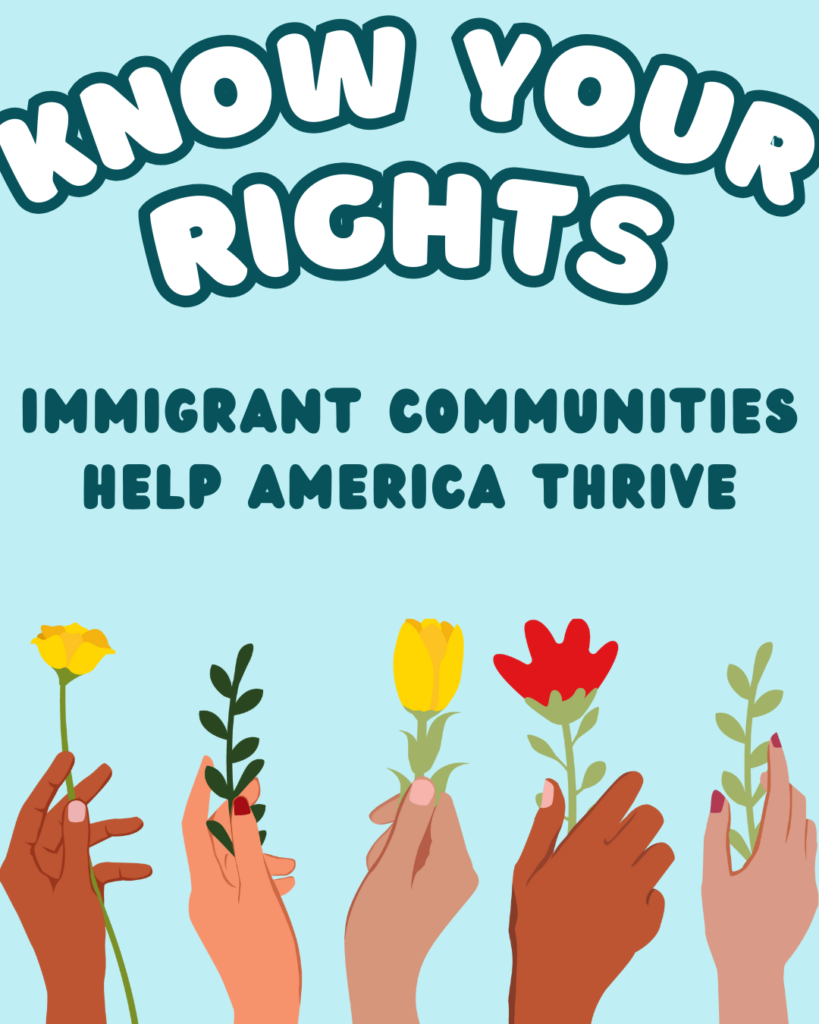
How to prepare in case law enforcement questions your immigration status:
- Reduce risk to yourself by remaining calm, keeping your hands where the officers can see them, do not lie or provide false documents.
- Prepare ahead of time with emergency plans. Memorize phone numbers for family members and your lawyer. Make plans if you have children or need medication.
- Remember your immigration number (“A” number) and share it with your family members, it will help them locate you.
- Give a copy of your immigration documents to someone you trust.
Know Your Rights:
- You have the right to remain silent. You do NOT have to discuss your immigration or citizenship status with police, ICE, or other officials. Anything you do say can be used against you in court. In Colorado, you do have to provide your name if asked. You may have to give your address, but you do not have to answer any other questions.
- If pulled over while driving, officers can require you show your license, registration, and proof of insurance. You do NOT have to answer questions about immigration status.
- If you are not a US citizen and an immigration agent requests your immigration papers – you must show them if you have them with you.
- You have to right to refuse a search of you or your belongings if asked. Police may pat you down if a weapon is suspected.
- If you are 18 or older, carry your papers with you at all times. If you do not have them with you, inform the agent you wish to remain silent or consult a lawyer before answering any questions.
- If you are arrested by police, you have the right to a government appointed lawyer.
- If you are arrested, say you wish to remain silent and ask for a lawyer immediately. Do not give any explanation or excuse. Do not say anything, sign anything, or make decisions without a lawyer.
- If you are arrested, you have the right to a private phone call within a reasonable time of your arrest. Police cannot listen in on a call with a lawyer.
- If you are detained by ICE or Border Patrol, you have the right to hire a lawyer but the government does not have to provide one. Ask for a list of free or low-cost options.
- If you are detained, you have the right to call a lawyer or your family. You also have the right to be visited by a lawyer in detention. You have the right to have your attorney with you at any hearings before an immigration judge.
- If you are detained by ICE, you have the right to contact your consulate or have an officer inform the consulate of your detention.
- Read all papers fully but do not sign anything with out a lawyer. If you cannot read the papers, tell the officer you need an interpreter.
- Do NOT discuss your immigration status with anyone but your lawyer.
If you believe your rights were violated:
- Write down all you can remember – badge numbers, officers’ names, patrol car numbers, which agency the officers were from, and any other details you can remember. Get contact info for any witnesses.
- If you are injured, seek medical attention immediately. Take photos of any injuries.
- File a written complaint with the agency’s internal affairs or civilian complain board. You may be able to do so anonymously.
For more information and a list of resources, please visit the ACLU website.